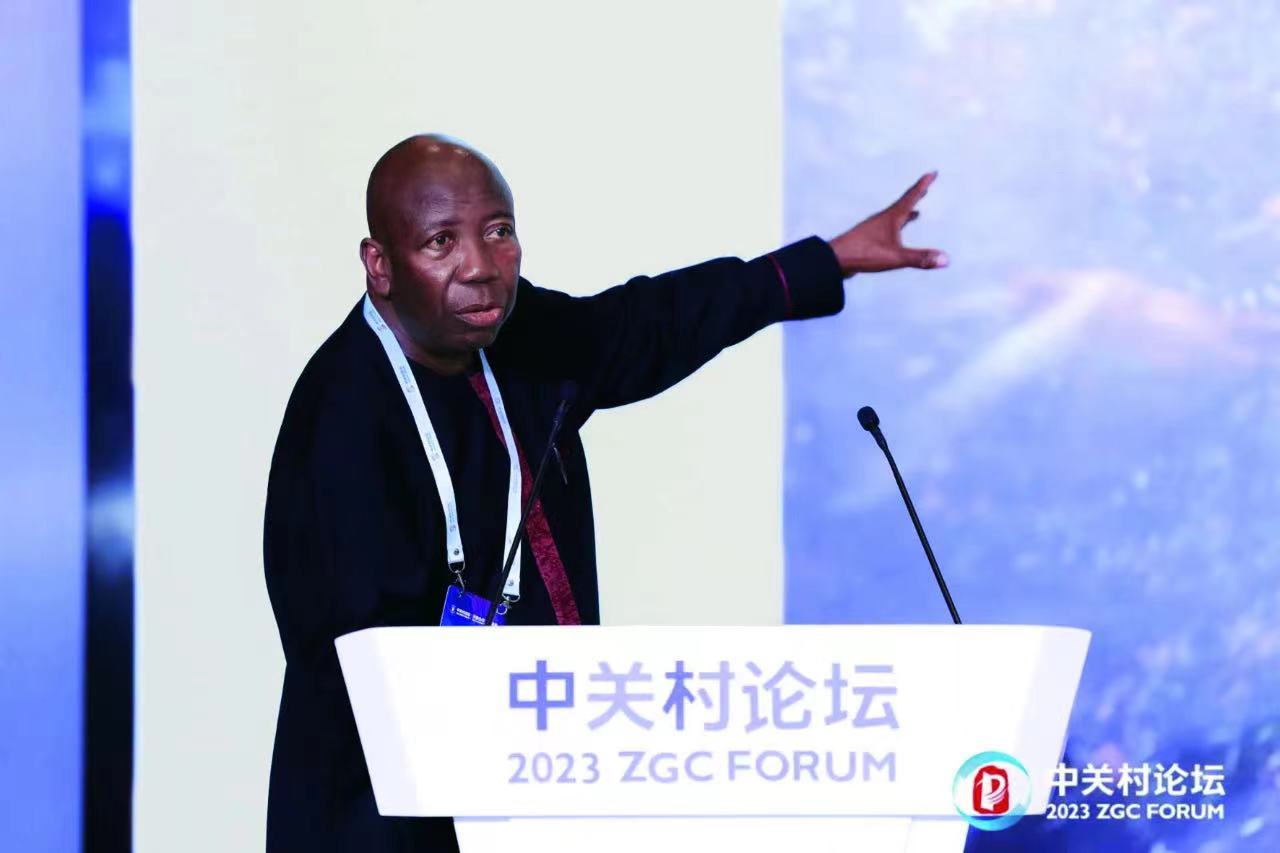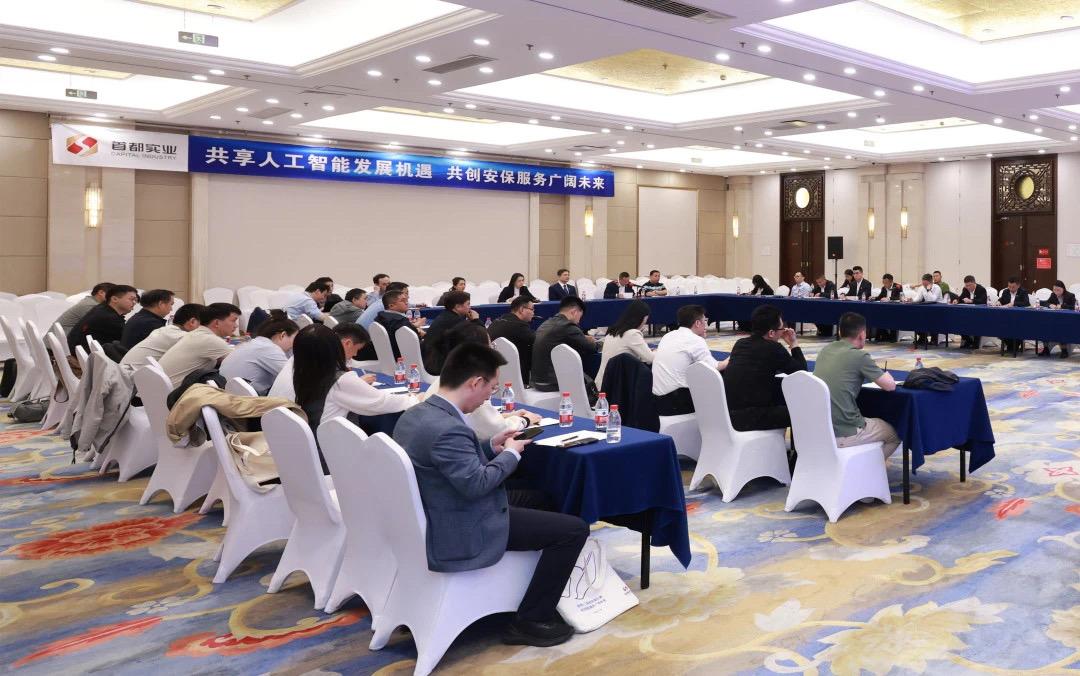Sci-tech Solutions to Solve Africa's Food Crisis
By?SHEN?Ben?&?LONG?Yun

Professor?Felix Dapare Dakora.?(PHOTO:?ZGC?FORUM)
For 41 years, Ghanaian plant biologist Felix Dapare Dakora has been focused on finding cost-effective and environmentally safe alternatives to nitrogen fertilizer, which are affordable for resource-poor farmers, as a solution to the problem of soil infertility in Africa. Currently, he is a Research Chair in Agrochemurgy and Plant Symbioses at the Tshwane University of Technology, South Africa.
Knowledge is the best charity
As the ancient Chinese saying goes, "Give a man a fish, and you feed him for a day. Teach a man to fish, and you feed him for a lifetime." Dakora is passionate about using his knowledge to help address the food crisis in Africa. From his perspective, the food crisis is still quite severe, affecting basic survival needs and impeding development. He opposes solely providing food aid to Africa, believing that it could not solve the problem at its core. For Africa, mastering advanced science and technology is the key to solving the food crisis.
Dakora emphasizes that self-sufficiency in food production is crucial for Africa's further development. From his perspective, the significant potential of Africa's vast land for food production can be tapped through technological innovation to fundamentally address the food crisis. In his work titled Biological Nitrogen Fixation (BNF): Towards Poverty Alleviation through Sustainable Agriculture, Dakora explains how to utilize BNF technology to drive solutions for Africa's food problems.
Additionally, Dakora applies his research to environmental protection and addressing global climate change. He noted that microorganisms in leguminous plants can be turned into bio-fertilizers, which have a smaller ecological impact compared to commonly used chemical fertilizers. He applauded China's efforts in climate change mitigation and is willing to collaborate with China.
Communication and collaboration lead to successful research
According to Dakora, "There can be no successful academic research without exchange and cooperation with colleagues worldwide."
Starting from his student days, Dakora recognized the importance of learning and exchanging ideas with fellow researchers worldwide. He firmly believed that early collaboration and learning in foreign laboratories with colleagues from other countries would expand their visions and master new technologies. He had studied and worked in many countries like the U.S., Canada and Australia. Even after returning to Africa, he maintained long-term cooperative relationships with colleagues from these countries.
Dakora also encouraged his students to go abroad for their studies.
He noted that students from developing countries, who remain in their familiar laboratories, tend to become less confident. When students return from labs in other countries, they will realize that their work is on par with peers in other countries, which influences their research direction in a positive way.
At the same time, Dakora didn't position African scholars solely as collaboration seekers. He emphasized that scholars worldwide also have a strong desire to collaborate with Africa, especially in fields like botany and zoology, due to Africa's biodiversity.
Long-standing friendship between China and Africa
Over the past decades, Dakora has visited China for exchanges more than 20 times, forging a deep friendship with the Chinese people and making significant contributions to Sino-African technological cooperation and cultural exchanges.
He is very optimistic about the prospects of China-Africa cooperation, noting that an increasing number of African students are choosing to study and work in China, engaging in technological collaborations. Dakora believes that such exchanges between Chinese and African students contribute to the mutual understanding of culture and national conditions, further promoting future cooperation between China and Africa in all respects.
According to Dakora, China has in the past encountered some of the issues that African countries face, such as food shortages and food security crises. Now, China has successfully resolved these problems. "Learning from a country with similar experiences is in Africa's best interest, as it's more efficient and easier to help Africa address the current food crisis compared to starting from scratch," he said.
Dakora envisions closer academic exchanges and cooperation between Africa and China in the future. He plans to engage in extensive collaboration with China in areas such as food crops and climate change.
This article was written in collaboration with International Talent Magazine.







